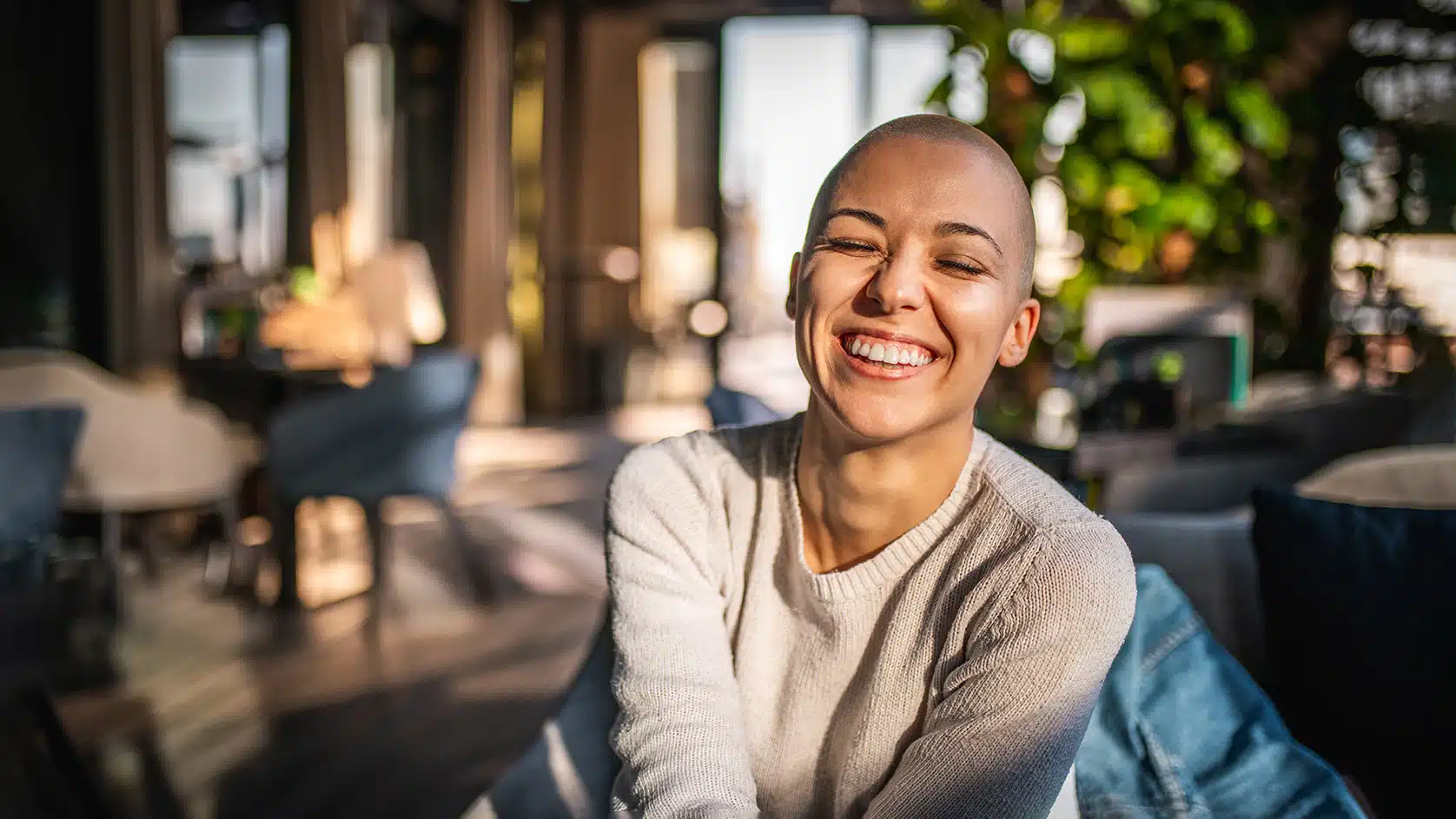Saprea > Online Healing Resources >Common Symptoms: Difficult Relationship with Body
Why Does My Relationship with My Body Matter?
At one point or another, we have all experienced some degree of discomfort or dissatisfaction with our bodies. Feelings of disappointment, judgment, or even resentment towards our own bodies can be attributed to a host of factors. Such factors might include unrealistic portrayals of youth and beauty within the media, expectations set by our families and communities, or societal prejudices against various skin colors, facial features, and body types.
Because the body and brain are so interlinked, the negative feelings and perceptions we may associate with our own body can impact other areas of our lives, such as our self-esteem, self-compassion, and overall well-being. These feelings and perceptions can cloud our vision of how our bodies serve us and our understanding of what our bodies are fully capable of.
And while everyone has felt some degree of displeasure or dissatisfaction towards their body, survivors of child sexual abuse can experience such tension and conflict on an entirely different level.
In What Ways Can Child Sexual Abuse Impact a Survivor’s Relationship with Their Body?
Trauma lives in both the brain and body. And for survivors of child sexual abuse, this trauma was instilled at a very young age, while the brain is still developing and the body is still maturing. In some cases, survivors endured their abuse before they had reached puberty. They may have been abused before they had any other experience with sexual intimacy or even had a full understanding of what sexual intimacy is. And even though our bodies are designed to respond to sexual stimuli, a survivor may still feel ashamed of or confused by how their body responded to the abuse, even though the body’s physiological reactions were perfectly normal.
Whatever the age and maturity level when the abuse occurred, survivors of child sexual abuse experienced a violation of their bodily autonomy. While such a violation is no less devastating when experienced in adulthood, it can be especially confusing and disorienting for a child or teen who has yet to develop an understanding of or a relationship with their own body and how it functions.
These feelings of confusion, shame, fear, and betrayal can live in the body for years and even decades after the abuse has stopped. Even into adulthood, the physical, emotional, and sexual trauma they endured as a youth can remain present and continue to affect their relationship with their own body.
This complicated relationship between a survivor’s brain and their body can manifest in many ways. Below are some examples of how trauma can impact a survivor’s body:1,2
BODY OWNERSHIP
Body ownership is about understanding that your body is your own. It does not belong to anyone else. At a young age, we are often taught this concept through the importance of setting boundaries, respecting others’ boundaries and understanding that others are not entitled to touch or see certain areas of our bodies just because they want to. Survivors may feel a lack of this body ownership from the unwanted experiences they endured and how severely their boundaries were violated. Such experiences might leave survivors with the impression that someone else is in charge of their body and that their own wants, needs, and autonomy are not worth considering.
BODY SHAME
Body shame occurs when you perceive your physical self as the cause of the experience you went through—either through the messaging of others or a perception that your body failed you in some way. For some survivors, this shame can manifest as feelings of betrayal toward their body because of how it responded to the abuse, how their body garnered the attention of the abuser, or because of their body’s response to the trauma (if, for example, it defaulted into freeze mode, rather than fight or flight). Though these are very normal responses to the trauma of sexual abuse, survivors may feel ashamed by what their body did or didn’t do during the abuse and towards the sense of helplessness that resulted.
BODY SATISFACTION
When a survivor’s early experiences with their body are tied to the trauma of sexual abuse, it can be more difficult for that survivor to have feelings of satisfaction or contentment with their body. Again, while it is common in our society to feel dissatisfied with our bodies or to fixate on what aspects of our bodies we think need to be improved, for survivors, this lack of body satisfaction can run on a much deeper level. And it can impact not only how survivors view their bodies but how they view their overall worth and ability.
BODY DISCONNECTION
For some survivors, the most formative memories of their own body are rooted in trauma. And in some instances, the body itself can feel like a reminder of that trauma. As a way for survivors to protect themselves from this trauma, they may start to distance themselves from their body’s experience, including what sensations their body may be feeling, what functions their body serves, or what physical needs they have. This survival response is known as body disconnection and may have first developed when the abuse began. However, survivors may continue to experience this disconnection from their bodies long after the abuse has stopped in order to avoid certain memories or triggers. And because the communication between the mind and body is so important, this disconnection can interrupt a survivor’s healing. It can also lead to additional health problems in cases where a survivor is so disconnected that they don’t notice pain or other problems their body is experiencing.
PHYSICAL HEALTH
The trauma of sexual abuse can impact not only how a survivor views their own body but also what they physically experience. Sometimes when trauma lives in the body, it can contribute to other ailments, such as chronic pain, illnesses, injuries, or chronic health problems. The continual anxiety, fear, and/or hypervigilance a survivor may experience might manifest as physical symptoms such as nausea, shallow breathing, muscle tension, or tightness in the chest. In some instances, survivors may face difficulties with certain physical activities, as these activities require an engagement with the body that a survivor may try to avoid, especially if they’re feeling disconnected from the body. Avoidance of such physical activities can sometimes exacerbate health problems or other physical issues.
SEXUAL ATTRACTIVENESS
Child sexual abuse can sometimes lead to increased discomfort and confusion around the notion of being “sexually attractive.” For some survivors, perceived sexual attractiveness can be accompanied by mixed emotions, many of which can be tied back to the trauma of their abuse. Feelings of fear, curiosity, shame, pressure, or a need to control can arise for a survivor when faced with unwanted messages about sexuality and attractiveness. For instance, receiving a compliment on their physical attractiveness may bring up feelings of repulsion, nervousness, and insecurity for some. On the other hand, other survivors may seek for such compliments to meet an emotional need.
BODY OBJECTIFICATION
Because of how their body was treated by those who abused them, survivors may sometimes feel as though their body is nothing more than an object. It’s quite natural for a survivor to internalize the objectification they were submitted to at such a young age. These feelings of objectification can contribute to a survivor viewing their body as an object of disgust or shame, influencing their perceived desirability or potential to be loved and wanted by others. On the other hand, internalized objectification can contribute to a survivor feeling as though the only thing their body is good for is sex. They may pursue high-risk sexual situations or engage in compulsive sexual behavior.
For these reasons and many others, a survivor’s relationship with their body can be especially complicated, leading to them feeling high levels of discomfort by simply existing in their own skin.
How to Practice Body Kindness
However difficult your relationship with your own body may feel right now, it is possible to find healing through body kindness. Body kindness is about reframing any feelings of judgment or shame you have towards your body into feelings of compassion and self-care.3,4 This can look different for everyone. What body kindness means to you will depend on your experiences in the past as well as your needs in the present, and can begin with these three questions:
- Where would you like your relationship with your body to be?
- How do you want to feel about your body?
- What would a peaceful relationship with your body look like?
Whatever your answers to these questions are, remember that body kindness is a shift that will likely take time. In fact, right now the notion of body kindness may seem impossible. And it may continue to feel that way on days when memories of your trauma feel especially close or when the emotions of shame, discomfort, or dissatisfaction feel overwhelming. But if you work at it in small steps, going at a pace that feels realistic to you, over time you will be able to reframe whatever shame or judgement you may feel towards your body into self-care and compassion. Below are some resources to help get you started.
Resources to Help Build Body Kindness
Below are three recommendations from our resource library. Each of these recommendations are tools that might be effective in helping you improve your relationship with your body.

Self-Compassion

Movement

